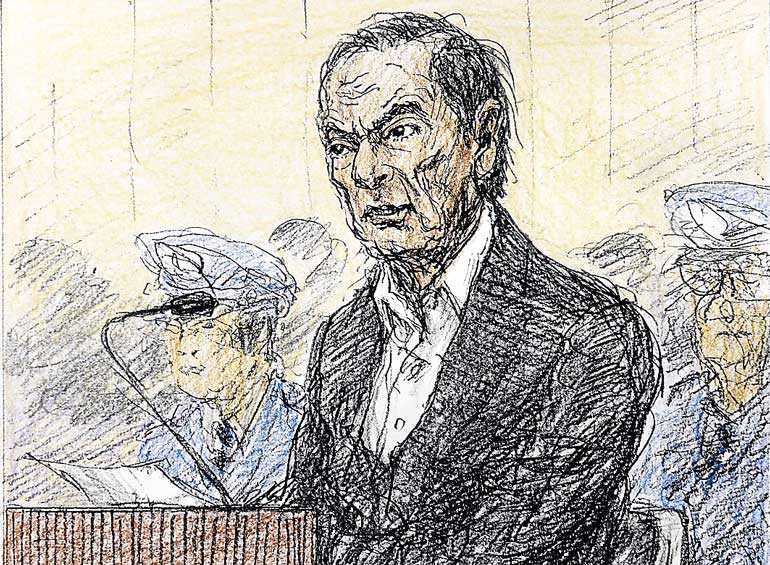Friday Feb 20, 2026
Friday Feb 20, 2026
Monday, 14 January 2019 00:13 - - {{hitsCtrl.values.hits}}

TOKYO (Reuters): Nissan Motor Co Ltd.’s ousted Chairman Carlos Ghosn declared he was innocent last week in his first public appearance since his arrest in November, telling a Tokyo court that he was wrongly accused of financial misconduct.
“I have been wrongly accused and unfairly detained based on meritless and unsubstantiated accusations,” he told the Tokyo District Court, according to a prepared statement which was obtained by Reuters.
“Contrary to the accusations made by the prosecutors, I never received any compensation from Nissan that was not disclosed, nor did I ever enter into any binding contract with Nissan to be paid a fixed amount that was not disclosed.”
Ghosn, credited with rescuing Nissan from near-bankruptcy two decades ago, appeared thinner than before his arrest as he entered a court in handcuffs and a rope around his waist. He wore a suit without a tie, and his dark hair showed grey roots. A crowd of journalists and television crew gathered outside the court house while earlier, 1,122 people lined up for 14 court seats assigned by lottery, highlighting the level of public interest in the case of the once-feted executive.
The hearing, requested by his lawyers, was held to explain the reasons for his prolonged detention since his 19 November arrest. Presiding Judge Yuichi Tada read out the charges and said Ghosn was being detained due to flight risk and the possibility that he may conceal evidence.
Ghosn’s Japanese lawyers are also expected to speak in his defence at a news conference scheduled later in the day. The legal team is headed by former prosecutor MotonariOtsuru.
Investment losses and Saudi payments
Ghosn has been formally charged with under-reporting his income. The 64-year-old executive has also been arrested, but not yet indicted, on allegations of aggravated breach of trust in shifting personal investment losses worth JPY 1.85 billion ($17 million) to the carmaker.
Regarding allegations that he transferred losses to Nissan, Ghosn said he had asked the company to temporarily take on collateral for his foreign exchange contracts. He said he did this to avoid the only other choice he had, which was to resign and use his retirement allowance for collateral.
“But my moral commitment to Nissan would not allow me to step down during that crucial time,” he said. “A captain doesn’t jump ship in the middle of a storm.”
Ghosn also said the contracts were transferred back to him, and that Nissan had not incurred any loss. Ghosn is also accused of making $14.7 million in payments to Saudi businessman Khaled Al-Juffali using Nissan funds in exchange for arranging a letter of credit to help with his investment losses.
Ghosn said in his prepared remarks that Juffali’s company was compensated for “critical services that substantially benefited Nissan”, including soliciting financing and solving problems involving a local distributor.
The Khaled Juffali Company also issued a statement saying it had received the payments for legitimate business purposes.
Ghosn, who was arrested first on 19 November, has been re-arrested twice on different charges since then, a tactic often used by Japanese prosecutors to keep suspects in detention.
He has been held at the Tokyo Detention Center, a spartan facility where small rooms have a toilet in the corner and no heater - a far cry from the jet-setting lifestyle Ghosn was accustomed to. His son, Anthony Ghosn, said his father had lost 10 kg (22 pounds) during his detention, according to France’s weekly Journal du Dimanche.
Under Japanese law, suspects can be detained without charges for up to 23 days, and then re-arrested on separate allegations.